Looking Back on the Newport Bermuda Race: A Navigator’s Race
Published on September 14th, 2015
By John Rousmaniere, Windcheck Magazine
Here’s a challenge: Sail 635 miles almost entirely out of sight of land, crossing a current running up to six knots in any direction, and then make your landfall on a low, tiny island that’s guarded by a sharp-edged reef.
Did we mention that you’re navigating a race to Bermuda? The vital importance of navigation to the Newport Bermuda Race is reflected in eight prizes that are either presented to the navigators of winning boats, or that include sextants as decorative features.
Did we also mention this? During the first 70 years of the Bermuda Race after it was founded in 1906, navigators had to rely on one instrument: the sextant. Some boats had radio direction finders and other primitive electronics, but the one essential navigational tool was the sextant. You know how important navigators are because they’re often the butts of jokes. A Bermuda racer, Edward Streeter, described the typical navigator as “crawling from the main hatch like a strange, subterranean animal. With eyes red and bleary from peeking through a sextant all the afternoon, he examined the sky critically and then dove below for his instruments.”
Back on deck, he handed a stopwatch to the designated timekeeper, took sextant sights of the sun or a star, and slid back below to calculate the fix using thick printed tables and a special clock, called the chronometer.
All that labor led to the moment of truth, which (according to experienced navigator Nick Nicholson) concerns “that little speck of land in the middle of the ocean.” Nicholson added, “All the self-doubts about what you had done for the last three or four days piled up at once. Were my sights accurate? Do I really have a clue? The first time Bermuda popped up in front of the boat approximately when and where it was supposed to be, it was a divine revelation. There was meaning to the universe. The celestial clock was still God’s timepiece, and it still ran with eternal perfection.”
In sextant days, a navigator’s word was Scripture. “The navigator was like a priest,” says Larry Glenn, who has guided boats in “the thrash to the Onion Patch” for decades. “People were always asking, ‘Where are we?’, and when you blindly put your finger on the chart, they’d believe you and say, ‘Ahhh,’ in a respectful way.”
True, a navigator might not know the boat’s exact position. Glenn says, “Someone would ask you, ‘Where are we?’ and you’d have to say, ‘I don’t know,’ and then he’d say, ‘Well, I’m going to sleep with my feet forward in case we run into the reef.’” If the reef has stopped only one boat in Bermuda Race history, it’s because navigators are cautious and also ingenious. At least one navigator followed a cruise ship to the island. A few have claimed that they followed the scent of oleanders and other island flowers blowing down to them.
The Age of the Sextant ended in the 1970s. After a big scare in a storm in 1972, the Bermuda Race permitted new Loran-C instruments within 50 miles of the start and finish. In 1980, electronics were permitted from start to finish.


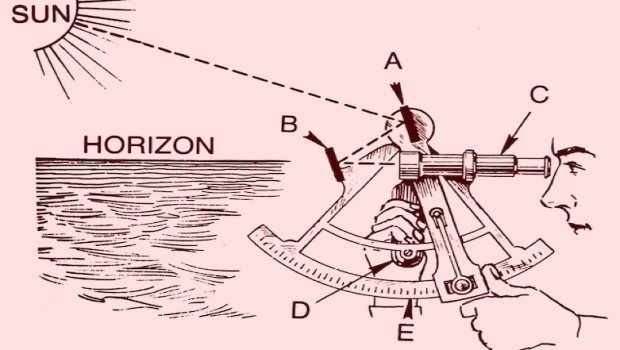


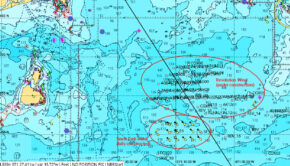
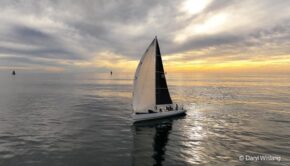
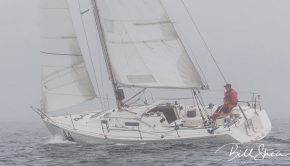
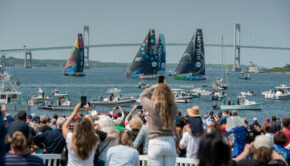
 We’ll keep your information safe.
We’ll keep your information safe.